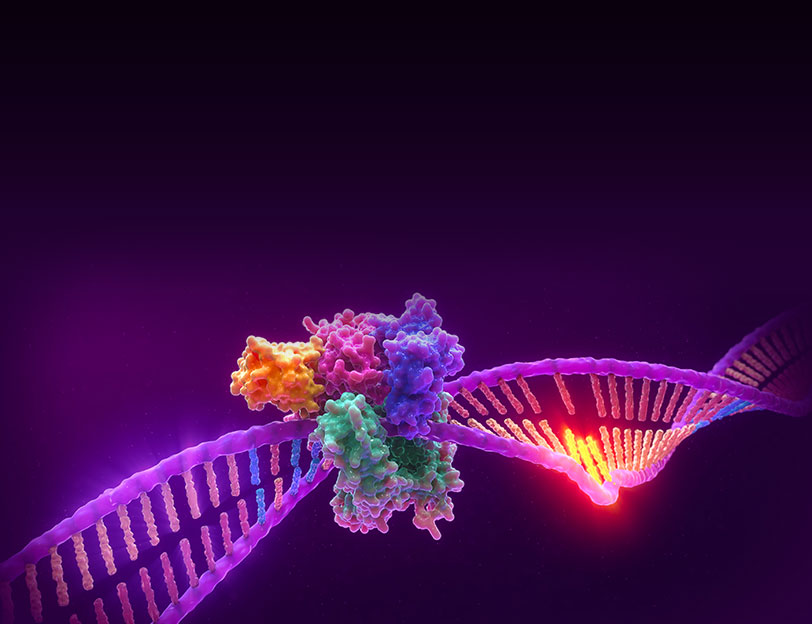Clinical MSI Testing IVD
Promega offers physicians a precision in vitro diagnostic assay for evaluating MSI status. The OncoMate® MSI Dx Analysis System is an IVD medical device, leveraging the same validated gold standard Promega MSI loci relied on by global clinical researchers for almost two decades. The improved system offers reliable MSI determination with strong agreement to IHC.
Filter By
Showing 3 of 3 Products
What is the Clinical Importance of MSI Status in Cancer?
Since 1983, MSI screening has been recognized as important in the care of patients with colorectal cancer (CRC). High-frequency MSI (MSI-H) is recognized as a potential marker for germline mutations in certain DNA mismatch repair (MMR) genes associated with the hereditary cancer syndrome, Lynch syndrome.
Lynch syndrome is caused by autosomal dominant mutations to the major mismatch repair genes MLH1, MSH2, MSH6 or PMS2 as well as the EPCAM gene that inactivates MSH2. Most often associated with colorectal cancer, Lynch syndrome also increases the lifetime risk of several other cancers including endometrial, ovarian and stomach cancer.
Universal screening of all colorectal cancer tumors for MSI status is recommended in guidelines by numerous physician-led
organizations. NCCN Clinical Practice Guidelines In Oncology (NCCN Guidelines®), developed by a panel of 33 leading cancer
centers, recommend all colorectal tumors be screened by MSI and/or immunohistochemistry for the expression of MMR proteins1. Published guidelines for molecular biomarker testing for colorectal cancer tissues by the American Society for Clinical Pathology (ASCP), College of American Pathologists (CAP), Association for Molecular Pathology (AMP), and American Society of Clinical Oncology (ASCO) recommend MSI by PCR be performed either stepwise or concurrently with IHC testing2.
Learn more about MSI testing in the Microsatellite Instability Resource Center.
- Referenced with permission from NCCN Clinical Practice Guidelines in Oncology (NCCN Guidelines®) for Genetic/Familial High-Risk Assessment: Colorectal, Endometrial, and Gastric. V. 2. 2024 © National Comprehensive Cancer Network, Inc, 2024. All rights reserved. Accessed October 15, 2024. To view most recent and complete version of the guideline, go online to nccn.org.
- Sepulveda, A.R., et al. (2017) J. Mol. Diag. 19, 187–225.
- Bartley, A.N. et al. (2022) Arch. Pathol. Lab. Med. 10, 1194–1210.
NCCN makes no warranties of any kind whatsoever regarding the content, use or application and disclaims any responsibility for their application or use in any way.



